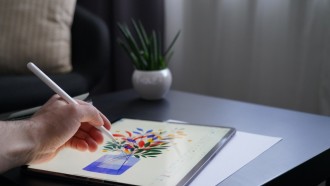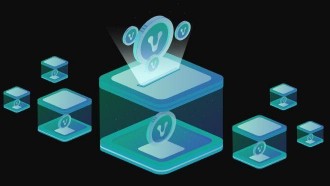With Adobe's Project Music GenAI Control, musicians can finally create custom samples effortlessly by simply describing their desired sound.
AI has its downsides, like damaging trust in media, displacing creatives, and flooding the web with junk. But it also sparks inspiration, as seen in Adobe's new AI music-bot, which excels as a creative prompt and idea generator.
"I think this can be a great time and money saver for small producers, as we are constantly looking for new samples to produce music," music journalist and musician Eloy Caudet told Tech Times in an interview. "The thing is, we always have to be very careful about copyrights when using samples, but with the ability to create your own samples with a single text prompt, life will be so much easier. We don't have to go through the whole sample clearance process - we can generate the sample and use it immediately without violating any copyrights."
Oblique Strategy
Project Music GenAI Control, a name that will surely have to be changed before any software ships, uses the now-familiar text-to-something AI model. You can ask for snippets of music by describing them, and it will generate drum loops, hip-hop beats, orchestral movie scores, and so on.
The gimmick here is that it goes beyond this generation stage, allowing you to hone and shape the results. You can extend a piece of existing music, for example, by adding beats and more. A future version might use sliders, buttons, and other parameters instead of text prompts, making it more like Photoshop for music and less like ChatGPT.
One use of these tools will surely be to create whole jingles and other muzak to avoid engaging and paying a musician. But another, way more interesting use is to use them as an endless garden of source materials and ideas.
"AI-based tools [...] can be useful as a starting point to help generate ideas or get out of a creative rut," said AI intellectual property lawyer and hobbyist musician Marc McClain in an interview with Tech Times.
Copyrights and Wrongs
Then, we get to the inevitable moral and legal arguments. If you're using any music, AI-generated or not, for inspiration, then you're probably not going to have any problems. But if you're taking them whole to use as samples, then the AI route is safer.
"I'd definitely feel more comfortable using AI-generated samples than samples from other producers/sampling other songs because, as I said, there's always the risk of copyright claims. It's much faster, definitely cheaper, and you can customize the samples exactly the way you want without spending hours listening to songs/samples," said Caudet.
Marc McClain, who is also, like Adobe, a member of the AI Content Authenticity Initiative, agrees:
"Because the USPTO and copyright office has currently deemed all fully AI-generated works as non-copyrightable, I wouldn't have to worry about sampling something and the owner coming back to sue me for copyright infringement later on if the track takes off," says McClain.
In short, because AI-generated media is not copyrightable, you cannot get into trouble for violating its copyright. But there's also a moral issue. The AI-produced music might not be protected by itself, but it is built on the work of other musicians. Morally, that's already uncomfortable, and what if the AI coughs out something that sounds very much like an existing, copyrighted work?
"As a musician, I would not use AI in my music for a variety of reasons. One is that most (though not all) of the engines are built on the backs of non-consenting people; another is that there is a fundamental sameness that is difficult to escape," said musician and technologist Downupright, aka Bill Boulden, in an interview.
Adobe gets around this problem partly by using only public-domain material to train its AI-at least, that's what it did for its demos of Project Music GenAI Control. For artists of all kinds, this is a glimpse of how useful AI could be-an endless source of inspiration, unencumbered by copyright concerns and free of the moral and legal quagmire that is stealing the work from human artists.
About the author: Charlie Sorrel has been writing about technology, and its effects on society and the planet, for almost two decades. Previously, you could find him at Wired's Gadget Lab, Fast Company's CoExist, Cult of Mac, and Mac Stories. He also writes for his own site, StraightNoFilter.com, Lifewire Tech News, and iFixit.








